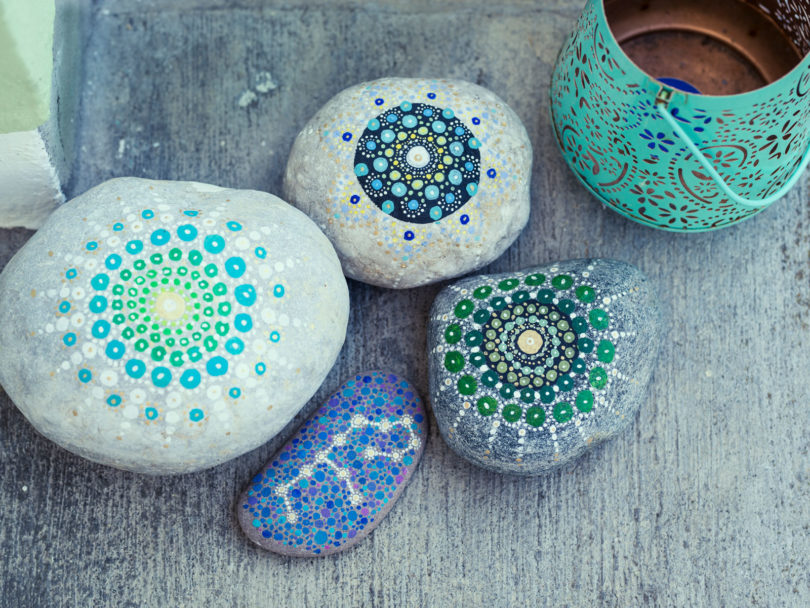You might think you can’t draw or don’t have an artistic bone in your body. But while your artwork might never hang in a gallery, creating art may be more beneficial to your mental health than you know.
Creating art can help people manage their depression or addictions, reduce anxiety and stress, increase self-esteem and explore emotions that are difficult to express verbally.
Making art has even been shown to reduce agitation in patients with dementia. The act of creating also increases levels of dopamine — the “feel good” neurotransmitter.
Sarah Balascio, an art therapist in Williamsburg, Va., explains, “I have found that art making is helpful because we notice the small things and are more focused on the present moment while creating. It is similar to meditation in that way and tends to have a calming affect on people. It’s a way of putting out there our thoughts and feelings that we may not be able to express through words.”
Artists describe the feeling of creating as a Zen state of mind, or “experiencing flow.” You can set your worries aside, be in the moment and focus on whatever you are making. Robert Oppecker, an accomplished silversmith and the art teacher at Matthew Whaley Elementary School in Williamsburg, describes the process of making a silver vessel: “The creation of the artwork is a spiritual experience; a sacred connection is made with the idea.”
Simply put, you can benefit from the positive feelings that creating art elicits, even if you aren’t a practicing artist. Oppecker has seen it in his years of teaching.
“Most children have little trouble letting go and making art,” Oppecker says. “Young children show little inhibition in their desire to draw. They realize early on that visual art is a language and they want to communicate visually.”
Yet something happens between childhood and becoming an adult — people seem to lose that easygoing freedom to create without judgment. How can you reconnect with your happy-go-lucky artist? Here are some ideas to get you started.
Find Materials That Spark Your Curiosity
Wander around a craft store and select something that inspires you. Buy some watercolors and brushes, check out those luscious pastels or invest in that gorgeous 150-color pencil set.
Make it Effortless to Create
Have a dedicated box or place for your supplies so they are easy to access. Leave them out over the weekend and you might find that others in your household join you, doubling your enjoyment.
Let Go of Expectations
“The experience of art therapy is more about the process than the final product,” Balascio says. Start with no plan and just use whatever color or mark on the paper feels right. Sometimes starting smaller is less intimidating. Make some three-inch-square paintings to boost your confidence.
Experiment
Have fun playing around with your art materials. Cut paper in a variety of sizes, buy inexpensive pre-made canvases or add images from a magazine to your creation.
Notice Your Mood
Are you happier and more relaxed after creating? Remember this mood the next time you arrive home after a hectic day. Is someone in your life having a rough time? Invite them to make art with you. You can talk and create at the same time.
What Does Your Art Tell You?
After you make your piece, set it aside for a week, then come back to it and describe it with words. Did you choose a serene or dramatic palette? Are your marks delicate or bold? What does your painting resemble or does it remind you of anything? Art is a way to visually communicate your emotions — what did you learn about yourself?
Experience Art
Another benefit of art is that when you are creating, you aren’t staring at a screen. Isn’t that, in itself, a wonderful accomplishment?
If making art is too much of a leap for you, but you would like more creative beauty in your life, go to a museum, attend a concert, sing in the car or dance at home to your favorite music. However you decide to have art in your life, it has the power to reduce anxiety, stimulate your brain and improve your mental health.




